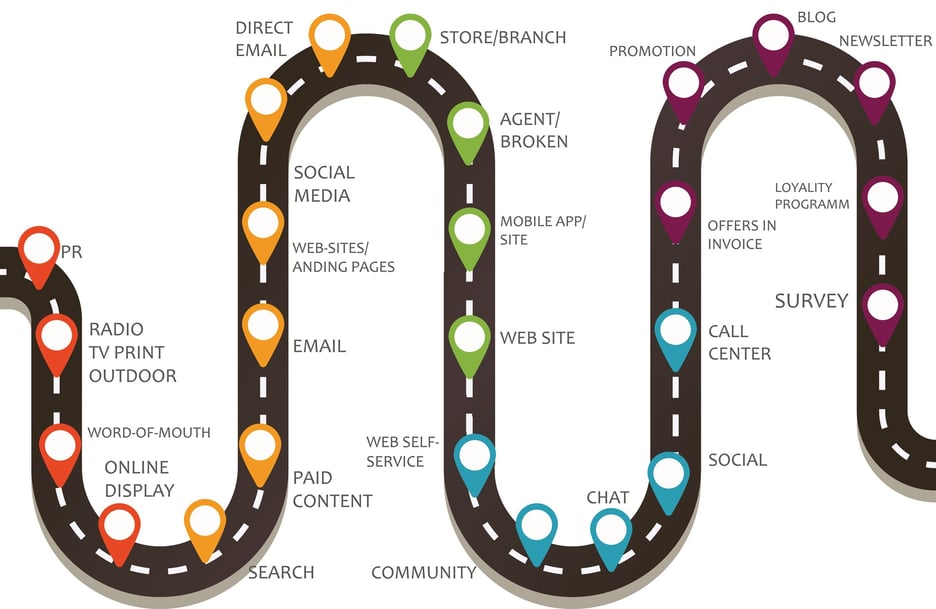
Patient care is a fundamental aspect of brilliant dentistry. And your ability to build a positive and trusting relationship with each of your patients can have a big impact on the quality of work you deliver. This is why it is important that you are able to develop an excellent patient experience…
To help you offer the experience and care that your patients expect and deserve, we’ve spoken to the experts. Andrew Stothert, Co-founder and CEO of global customer experience alignment consultancy Brand Vista, tells us what dentists can learn from other industries creating irresistible customer experiences.
.png?width=936&name=Optident%20Interview%20Blog%20(4).png)
Tell us about yourself…
I am the CEO and co-founder of Brand Vista. The raison d’etre of our organisation is to use the brand to drive compelling omnichannel customer experience that delivers business success
We do this with an approach we call brand alignment, which puts the brand at the centre of the customer experience.
We have been working in this area for 17 years and have a diverse range of B2C and B2B clients including Merlin Group, Asda, Mitchells and Butler, AstraZeneca and the Dental Buying Group (DBG). But each client is bound by one common goal: the need to manage the customer experience.
Why is customer experience a hot topic right now?
The rules have fundamentally changed, creating a two tier brand society…
One tier comprises legacy brands that have grown up through merger and acquisitions, meaning they often have complicated back end systems and multiple overlapping processes. It can be very clunky way of working that gets in the way of providing a good customer experience.
Then you have the disruptors, such as Uber and Airbnb. They build straight out from a digital platform and enable the customer to have the digital experience they want. The outcome of such changes is that the customer is now in control.
Buyers’ access to information and data is forcing companies to think about the customer experience more seriously. Every company has a customer experience, the choice is whether you choose to manage it or not. If you don’t, someone else will.
Is the customer experience critical to every organisation, regardless of industry?
Put simply, every company has a customer. So how you manage that and differentiate yourself is up to you.
It is more difficult for organisations with legacy systems because of the speed and cost of change, but you don’t have to start by changing the whole organisation - just the bits that are most important to customers.
I don’t think many businesses are naive enough to think customer experience isn’t important, but many are struggling to understand how to do it.
What experience do you have in the health sector, and what challenges does the industry face when it comes to delivering a great patient experience?
We have worked with DBG, an organisation which works alongside dental practices providing training, compliance, engineering, materials and equipment. It has also recently started working with medical practices.
Patient relationships with both doctors and dentists have changed as a result of technology. They now have access to a wealth of information online and will self-diagnose and read about the treatments available and the options on offer before they visit the surgery.

There are also numerous patient groups that use digital media to lobby bodies like the National Institute for Health and Care Excellence (NICE).
All of these changes influence the patient experience.
How do such changes increase pressure on doctors and dentists to provide a great patient experience?
Patients want immediate information - they want to know what their options are, what treatment pathways are available, and to find the best specialists. It is hard to deliver on these expectations.
In addition, patients now compare the experience they get as a consumer in a hotel, restaurant or shop, to the experience they receive at a dentist.
For example, we work with a restaurant client which studies how Bentley treats its customers. People will no longer just compare dentists to dentists; their expectations have changed.
How important is it for dental practices to see themselves as a brand, and how does this enable them to deliver a better patient experience?
A brand is an outcome of getting the communications, the physical experience and the digital experience right, so people feel certain things about that organisation and become loyal to it. It creates a brand with substance. Without that consistency they just become a generic supplier.
Many dentists are generic suppliers.
Great dentists will have a clear vision about why and how they want to be different. And they will explain that to everyone at the practice and get them on board before introducing measures that will allow them to achieve that.
It means they can create something special which will become a brand, and that will attract people.
What can dentists learn from other industries?
They need to start by looking at the different patient journeys…
An existing patient and a prospective patient will have different needs, different journeys. Break these two journeys down into sections and look at the key triggers.
For example, when it comes to making appointments, which brands are renowned for their seamless booking process? Look at how Uber takes customer bookings, or at how Hilton have recently transformed their booking process.
Look at the life time value of the patient too, as opposed to just the transactional stuff. Who handles delays or queues well? Look at some of the airlines and how they make people feel special while they wait. Consider Legoland Discovery Centre and how they entertain children while they are at the attraction. It is a key part of the end experience.
Consider how other organisations might follow up after a transaction too. For example, a retail store will often email you to ask you to review your experience. It is not something that dentists often do, but the impact of a follow up text or call could be significant.
You can completely remap the patient journey by using best in class ideas from other companies, building a business case around each stage to identify how a slicker process will create more income.

Is breaking down the patient journey the first step to improving the patient experience?
Yes, but first look at how you are currently delivering the experience and compare this to your vision of what you want to deliver. It will give you an immediate gap analysis. This shows what you need to improve, as well as the potential financial return.
How can dentists gather the data they need to be clear about what patients want?
By asking both existing patients and staff.
But remember, your staff may not be professional insight people. Brutal questions have to be asked in order to face brutal truths. Most people who do self-oriented research get the answers they want to hear and can bury any bad news.
The same is true with staff. The front of house staff will always know more about how customers - in this case, patients - feel than anywhere else in the business. But how you ask those questions of staff and patients is important. If you talk to staff, make sure you hear them and believe them.
If you aren’t absolutely passionate about building something special, no matter how difficult it is, don’t bother starting.
As patients increasingly go online to review dentists and book appointments, is there an opportunity for dentists to reinforce their brand in the digital space?
The idea that the relationship with a patient only starts when they walk through the practice door is bonkers. The same is true of buying a new car. When a customer walks into the showroom they have already visited the website and researched what they are buying. The salesman is negotiating with someone who is fully informed.
The same principle applies at dental practices. Patients are increasingly well informed and it is up to dentists to provide a consistent experience both online and offline, from the moment a person visits their website to the moment they step out the door.
Is there a difference between how NHS and private practices approach the patient experience?
Dentists who have a mix of patients should design the experience to meet the highest expectations. It doesn’t have to cost them anything, they just have to think about it.
No brand has ever failed through the application of good manners and thoughtfulness.
How important is it for dentists to think outside the box to differentiate themselves?
It can be helpful but it must be relevant to the experience they are trying to build. Ultimately, you only know where to invest when you have actually mapped the patient journey and worked out why you will be better and more attractive than any other dental practice. You need to act as a business.
A great patient experience at a dental practice will be frictionless, with patient problems solved easily and efficiently at their convenience. The more a practice fits in with the patient’s lifestyle, the more the patient will be inclined to pay a premium for it.

